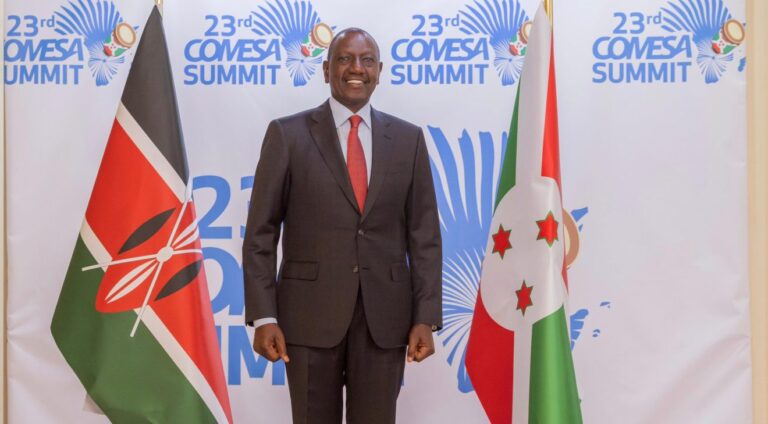
Kenyan Military Arriving in Haiti. Photo/KDF
By Daisy Okiring
The United States has given its strongest indication yet that it wants a new international force to take over leadership of the Kenyan-led security mission in Haiti. The move follows a phone call between President William Ruto and US Secretary of State Marco Rubio on Tuesday, during which Kenya lobbied for United Nations logistical support for the mission.
Kenya has provided the bulk of manpower for the Multinational Security Support (MSS) mission in Haiti, but the US has been the main financial backer.
Haiti on the brink of collapse
Kenyan police officers first deployed to Haiti in 2024 to help secure critical infrastructure amid escalating gang violence. The UN has repeatedly warned that the capital, Port-au-Prince, is on the verge of being overrun, with the country gripped by a worsening humanitarian crisis.
Despite Kenya’s contributions, the MSS mission has struggled with major challenges, including shortages in personnel, intelligence, equipment, and security infrastructure.
To address these gaps, UN Secretary-General António Guterres recommended the creation of a UN support office for the MSS, while ruling out the option of a full UN peacekeeping mission.

US pushes for OAS involvement
The United States is now urging the Organization of American States (OAS) to step up and lead stabilization efforts in Haiti. Washington, which provides significant funding to the OAS, argues that regional ownership is critical for long-term security.
“The US thanks Kenya for its dedication for the last year. We must ensure that an even greater share of the international community is invested in the fight,” said Kimberly Penland, US Deputy Chief of Mission to the OAS. “We will also seek robust regional participation to provide strategic leadership of the force. We note the next international force must be adequately resourced.”
Rubio hints at strategy shift
US Secretary of State Marco Rubio had already hinted at the change in May, when he told the Senate Foreign Relations Committee that a new approach was urgently needed.
“We are seeking to come up with an alternative strategy because Haiti is heading in a bad direction,” Rubio said. “The OAS has not led a mission since 1965. Why would we have an OAS if it cannot deal with Haiti? This is one example of something I would like us to lead on, and that is to get organizations like OAS to step forward and provide a mission to deal with Haiti.”
If implemented, the plan would see Kenya relinquish its leadership role, despite its continued deployment of personnel on the ground.



